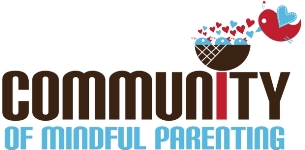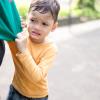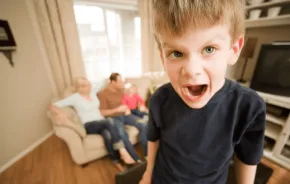
 Late-fall light streamed through my minivan’s windshield as I approached the school pickup line, eager to hear about my first-grader’s day. But when she climbed into her booster seat, clambering past her two younger siblings in their car seats, her small face trembled with accusatory rage. “I didn’t get to check out a book at the school library,” she said. Why? “Because YOU forgot to put my last book in my backpack this morning.”
Late-fall light streamed through my minivan’s windshield as I approached the school pickup line, eager to hear about my first-grader’s day. But when she climbed into her booster seat, clambering past her two younger siblings in their car seats, her small face trembled with accusatory rage. “I didn’t get to check out a book at the school library,” she said. Why? “Because YOU forgot to put my last book in my backpack this morning.”
I sat quietly, feeling a momentary swell of parental shame. That’s right — it was Library Day. I let out a breath. “I’m sorry, honey. That must have been hard. But remembering to return a library book is your responsibility.”
Predictably, she didn’t agree. But I held my ground: With a new baby in the family, I simply couldn’t stay on top of the school library books she was checking out. So, she had to — and, over time, she did. With the help of a designated spot for library books in her room and handwritten reminder notes, she remembered to throw last week’s book into her backpack on the day it was due, her face beaming with hard-earned pride.
While at that time I felt guilty, I unwittingly gave my child a gift, and it’s one that’s gaining ground as a highly valued learning tool: the gift of failure.
What failure fosters
New research shows that childhood failures pave the way for a successful adulthood (if only I’d known this on Library Day). Failure teaches kids about perseverance, creativity, resilience and motivation in ways that nothing else can, says Jessica Lahey, New York Times best-selling author of The Gift of Failure: How the Best Parents Learn to Let Go So Their Children Can Succeed.
Kids who aren’t allowed to fail won’t develop perseverance, adds Angela Duckworth, a University of Pennsylvania researcher who wrote the well-known Grit: The Power of Passion and Perseverance. It turns out grit is more strongly linked to success than IQ, good looks or physical health, says Duckworth. Kids who are protected from failure by a parent who swoops in to the rescue by, say, hand-delivering a late homework assignment or demanding that a teacher change a poor grade wind up without the perseverance needed to succeed.
Failure is so central to learning that the Girl Scouts of America began a recent PSA with a message about being “prepared to fall down, get back up and go for it.”
That message “is central to what Girl Scouts is all about,” says Stefanie Ellis, spokesperson for Girl Scouts of Western Washington. “We want girls to discover what they’re passionate about, and [that] that comes with challenges and pitfalls. How those challenges are handled is paramount to success.”
Though I didn’t know it at the time, the library book experience provided a near ideal platform for early learning about failure. The stakes were relatively low: A couple of late fines for early readers wouldn’t keep my daughter out of college. Plus, she had weekly opportunities to repeat the experience, along with the lesson, because if she failed to remember her books one week, she could try again the next.
Like many of life’s lessons, failure’s learning value is enhanced by repetition, so allowing children to experience small failures, like forgetting a lunch box or flubbing an assignment due date, sends the message that failures aren’t catastrophic, says Tacoma-based psychotherapist Kent Hoffman, co-author of Raising a Secure Child.
Kids can always try again. And for parents who are tempted to turn into knights in shining armor, the message is even simpler. As Lahey of The Gift of Failure puts it: “Every rescue is a lesson lost.”
Join us in #kindfulness
Finding time (and mind) for the things that matter most — from connecting with family to engaging in meaningful work to contributing to the community — is a daily struggle. Yet we know how important it is to our readers. That’s why ParentMap is embarking on a year-long conversation to explore how families and schools can nurture empathy, mindfulness and kindness. We’ll look at research, share tools and practices and listen to your stories and questions.
How failure boosts motivation
When parents struggle to embrace failure as a natural part of learning, kids notice. According to Stanford researchers Kyla Haimovitz and Carol S. Dweck, parents’ beliefs about failure help shape kids’ motivation to learn. Their 2016 study found that children could accurately determine whether their parents viewed failure as a setback or an opportunity. These beliefs influenced kids’ intelligence mindsets, defined as their beliefs about their own potential for learning and growth.
The researchers theorize that when parents focus on performance and ability (or the lack thereof) instead of on learning, children tend to believe that their own potential is limited. That drains motivation to learn. Children who view smarts as something they grow instead of something they’re given tend to approach obstacles more creatively. When one strategy doesn’t work, they’ll devise another and try again.
Emphasizing results over effort sidesteps the sometimes messy process of creatively approaching a problem, which subtracts the learning value from the equation, says Lahey. That’s why dangling carrots in the form of rewards or bribes is ineffective and even counterproductive.
“Extrinsic motivators, or motivators that come from outside, undermine motivation,” says Lahey. “Kids who are rewarded for creative activities produce less creative products and are less invested in the endeavor.”
How to make failure matterRaising resilient, motivated kids who bounce back from failure isn’t easy, but it is possible, with these expert strategies.
|












